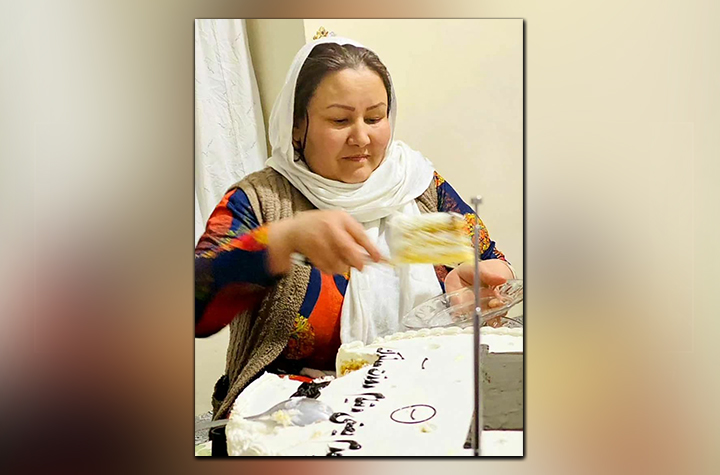A day before the International Women’s Day, Soghra Amiri, seemingly satisfied with her achievement, received me in her neatly well-ordered spacious house in the western neighborhood of Kabul. She looks at her early 40s. Strong and smartly business-minded, Ms. Amiri is running a flourishing food business that has rapidly found its way in the contested food market in a city that is bursting with low-priced restaurants and easily accessed street foods.
“I love work and I love to have my own income,” she told me when I asked her about her incentive to set up a food business. The number of women who run small businesses in the capital Kabul is on a surprising rise in most recent years. Not very long ago, the Afghan society was feeling uncomfortable to see women running a business but today, thanks to what is most often termed as hard-gains over the last 19 years, women can set up their businesses in urban centers of the country.
“Women need to support each other.”
“Cooking is my favorite job. A close friend of mine, who is a big fan of my cooking, encouraged me a lot to open my food business,” Soghra Amiri, who is nicknamed as Mother-e-Mustafa by the community, said.
Soghra and her flourishing business are a new reality of today’s Afghanistan. Despite the hostile anti-women environment, a tiny female population has been thriving to stand on their own and make a contribution to the country’s already broken and dependent economy. According to the Afghanistan Women Chamber of Commerce and Industry, 2471 women have businesses in Afghanistan.
With the help of a close friend, Soghra, created a Facebook page to advertise her business and receive online orders. “I never forget the first food order I received. A lady ordered ashak, a local Afghan food, for 30 people the next day we advertised our business on Facebook.”
Soghra Amiri hired new workers as demands for food supply grew up. She employed her husband and her son who now are delivering food orders to customers. Every day, she receives 10 to 12 food orders. She has hired four women in the kitchen who assist her in cooking and preparing the dishes.
Amin, Soghra’s husband, is a cooperative and supportive partner. Working as the right-hand of his wife in the kitchen, known as Ashpaz Khana Mother Mustafa, Amin is in-charge of logistical affairs. “When I receive vegetable food order, Amin cleans and washes the vegetables and prepares it for me to cook,” Soghra says. Amin, 38, is a high school graduate. Previously he used to run a clothing store which he was forced to close during the Covid-19 period.
In March 2020, many small businesses went bankrupt as the government had imposed a lockdown on major cities to prevent further outbreaks of the Covid-19. Many including teachers, short-term contractors, shopkeepers, and daily wage workers lost their sources of income and some small businesses became bankrupt.
Soghra Amiri believes that Afghan women can make a great deal of contribution to the family economy if they break the old traditional mindset and work shoulder to shoulder with men. “Life is difficult in Afghanistan, it becomes easier if women work shoulder to shoulder with men.”
A number of challenges still block the path Afghan women take to stand on their own and run their businesses. Soghra’s story depicts a new emerging identity of women who have sprung up over the last 19 years. She is one of the few women in Kabul who is determined to make a difference. “Women need to support each other.”
Soghra’s call for women’s solidarity comes at a time when women in Afghanistan are facing an uncertain future given the ambiguity which clouds over the future of political setup in the country.




